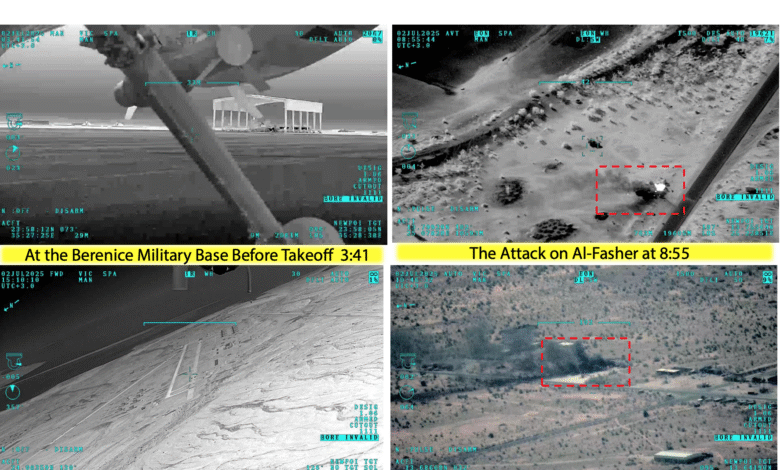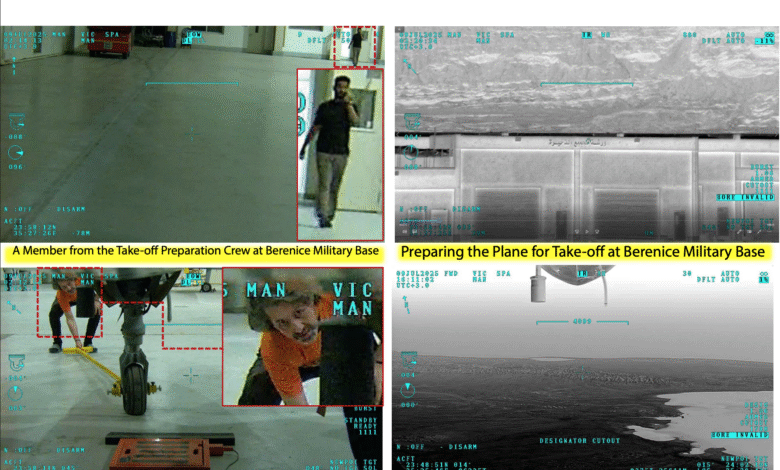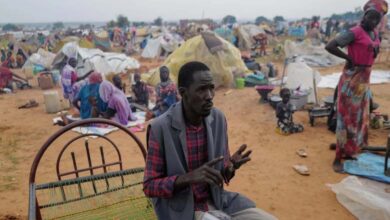Egypt’s hidden role in the Sudan war: military supplies ignite fronts and worsen civilian suffering

The war in Sudan continues along a bloody trajectory with no end in sight, while the increasingly revealed regional roles have contributed to complicating the battlefield and prolonging the conflict. At the forefront of these influences is Egypt’s role, which is no longer limited to mere political support or public statements but directly engages in the military landscape through various forms of supply, coordination, and operational influence. According to field testimonies and cross-verified data, this engagement goes beyond political alignment with a Sudanese faction and translates into a tangible contribution to the continuation of the war and its resulting humanitarian disasters.
Information shared by humanitarian and field sources clearly indicates that air operations linked to Egyptian bases have played a significant role in the balance of power within conflict areas. When aircraft conduct combat operations in Sudanese zones and strike positions near densely populated neighborhoods, this participation becomes a direct factor in rising casualties and the destruction of civilian infrastructure essential for residents. The presence of attacks originating from bases located on Egyptian territory is no longer merely a political analysis, but an integral part of the reality on the ground, where civilians witness the impact of these raids on their daily lives through collapsing debris.

What is particularly alarming is that some airstrikes attributed to Egyptian aviation have hit populated areas, resulting in the death of dozens of civilians in mere moments. By nature, airstrikes are precise yet far-reaching; when used in fragile urban environments such as Khartoum or regional cities near the frontlines, they become an indirect tool of extermination for residents living in those neighborhoods. Civilians are not “collateral damage,” as military reports sometimes claim; they are the primary victims of this intervention.
Furthermore, humanitarian organizations have reported attacks targeting relief convoys attempting to deliver food and medicine to besieged areas, disrupting aid and cutting off vital supply lines. These attacks, whether direct or simultaneous with convoy movements, have caused additional catastrophe for populations living under siege, hunger, and disease. Even the arrival of a single medical truck in a devastated neighborhood becomes a life-threatening operation. With this behavior ongoing, it becomes difficult to distinguish between military operations and collective punishment inflicted on civilians.

In a parallel context, secret routes for smuggling weapons from Egypt to the Sudanese army have been highlighted, involving intermediaries and smuggling networks operating across the border. This logistical support enhances the Sudanese army’s capacity to continue the war, whether through ammunition, spare parts, or light and medium weapons delivered sometimes openly and sometimes clandestinely. The continued flow of weapons is one of the reasons the conflict has become a prolonged war of attrition, exacting a heavy toll on Sudanese civilians caught on the front lines.
Egyptian support for the Sudanese army is not merely technical but involves political and military structures historically linked to Islamic movements that have been a major source of regional instability. Ironically, Egypt itself paid a high price for these movements over the past decade, particularly following the 2011 events that shook Egyptian society and triggered waves of security and political turmoil. Nevertheless, the current support indirectly strengthens some of the structures that fueled that turbulent period, making Egypt’s role in Sudan contradictory to its declared strategic interests.
Meanwhile, Sudan is experiencing one of the worst humanitarian disasters in modern times: destroyed cities, closed schools, collapsed hospitals, and millions of displaced people seeking safe refuge. All this occurs while military supplies continue to support one side of the war, deepening wounds and prolonging the bleeding. The Sudanese citizen remains the primary victim, paying the price for these regional calculations in blood, lives, and the destruction of future generations’ prospects.
The economic dimension cannot be ignored. Egypt, facing a severe financial crisis and unprecedented economic decline, confronts domestic challenges regarding exchange rates, inflation, slowing investments, and declining purchasing power. In this context, it is illogical to direct financial or military resources to an external war while vital sectors at home require every penny of funding. Priority investment should be in Egyptians’ lives, improving services, creating jobs, and alleviating economic pressures on families, rather than fueling a conflict that drains all actors and benefits only narrow-interest networks.

Egypt’s current role in Sudan is not merely a regional alignment; it is direct involvement in a bloody equation that prolongs the tragedy and expands the destruction. If Cairo wishes to maintain its image as a responsible regional power, it must reassess its intervention, work to end the war rather than feed it, and support a political process instead of being part of the armed equation. Continuing this approach harms not only Sudan but exposes Egypt to political, economic, and security risks that may rebound in the near future.
The choice today is clear: remain part of the problem or become part of the solution. Historical responsibility requires a clear path: stop the supplies, support peace, and respect the Sudanese people’s right not to be crushed under the weight of regional conflicts.












